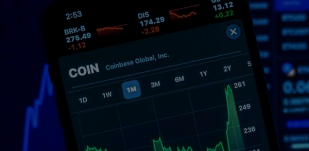Paying Your Overseas Property Bills: A Guide to Foreign Exchange
Gary O’Driscoll
Chief Operating Officer
If you’re reading this, the chances are you’re the proud owner of a property overseas. In which case, congratulations! On the other hand, you may just be being prudent and checking out your future obligations before you commit. In which case, well done for being thorough!
Either way, you’ll know that buying a new place is just the start of your overseas financial commitments. Owning a property brings with it intrinsic costs – from foreign mortgage payments and maintenance to management agents, services and utility bills. Whatever the reason for your purchase abroad, be it a letting investment, holiday home or place to retire or relocate to, you’ll inevitably have ongoing bills to pay.
With the right approach and help, however, you can side-step many of the hassles, pitfalls and costs that come from making regular payments in a foreign currency.
Here we’ll take you through the common costs owning a property overseas brings with it and how you can best manage and economise them. If you have any questions in the meantime, or want to talk to an experienced and dedicated currency specialist, we’re only ever a phone call or email away on 0207 151 4832 and hello@clearcurrency.co.uk.
Does how you use your property make a difference?
Naturally, yes. How you use the property will decide where your primary costs lie which can make them vary dramatically.
A holiday home or letting investment
Even if you’ve bought a holiday home for your own trips, you won’t be there year round. So it’s only logical to rent it out and have it earn some money instead of lying empty. This means you’ll likely incur fees for someone to manage bookings, cleans and other essentials to make it viable. If you’re using a letting service like Airbnb, don’t forget to include the platform fees in your costs too – every penny and cent matters.
Importantly, you may also need to pay tax on any income you make – not just in the UK but also in the country where you own your property. There are agreements (called double-taxation treaties) designed to make sure you don’t pay the same tax twice, but the future of these is likely to be affected by Brexit.
A retirement or relocation home
Living in your property full time means you’ll have bigger utility bills (although with longer, warmer days in sunnier climes, they could still be significantly lower than you’ll incur in the UK!) but won’t have to shell out for someone to manage your property remotely. It also gives you more freedom to choose things like whether you pay a cleaner.
Know the costs…
Local taxes
In the UK we pay council tax on any properties we own. Most European countries have a similar system in place, which means you may need to register and pay an equivalent for your new place. Do you research to make sure you’re meeting your legal obligations.
Utilities
Water, gas, electricity, phone and broadband – if you have them you’ll need to pay for them and rates can be very different to those in the UK so it’s important to check how much they’ll cost you. In sunnier climates, solar power is constantly growing in popularity as a sustainable energy source and there are plenty of schemes from different governments offering subsidies on installing the right equipment and even buying any energy you don’t use back from you.
Insurance and maintenance
No matter if you’re renting out or living in, you’ll need property and contents insurance. Depending on how you use the property, your insurance premiums will be different. It’s much the same with maintenance and keeping on top of things – especially important if your place is located somewhere open to the elements like on the coast.
Management fees
If you’ve bought a property in a managed complex or apartment block, you’ll likely need to pay monthly or annual management fees for the communal areas. And if you’re renting your property out, don’t forget to factor in the fees for a letting agent or platform.
Licences
In some countries – including parts of Spain and the Canary Islands – you’ll need a licence to rent your property out.
Exchange rate changes
Currency fluctuations can have a massive impact on your costs, especially if you’re making regular exchanges to cover any of the overseas payments we’ve mentioned here. Depending on how much you’re exchanging, even a small fluctuation in the value of the pound against the currency you want can be the difference between being able to pay your bills or not.
And how to minimise them…
The best way to make sure you haven’t missed anything important is to get the right advice from the right people.
Foreign exchange can seem laborious and fraught with risk, even if it doesn’t have to be. If you’re making regular payments, it’s vital to make the most of every exchange you make to maximise your sterling’s value and minimise your foreign bills. Clear Currency has spent years helping overseas property owners manage their regular exchanges, whether it’s covering utility bills or making pension payments. Our currency specialists can help maximise every cent of your sterling savings, so you have more to spend on the things that count.
Five steps to minimise your overseas costs
If you’re doing a quick one-off exchange for, say, a holiday, you’ll likely just use a bank or post office or just use your card at a foreign cash machine and ignore the subsequent bank charges. But when you’re making regular exchanges that can quickly add up to serious money, you need to take a more practical approach and in particular plan for your exposure to currency risk.
By using an online platform like Clear Currency you can make your payments quickly, securely and, crucially, with complete transparency on the rates you’re getting and any fees you may incur.
1. Sign up to Clear Currency
Complete a quick online signup form telling us what your needs are and we’ll open an account for you and assign a dedicated foreign exchange specialist from our team.
2. Set your rate
A member of the Clear team will walk you through how the exchange process works, answer your questions and discuss how best to meet your needs and get the best rates for the currency you’re buying. You can do this over the phone or via your online Clear Currency account.
3. Transfer your funds
Once you’re happy with the exchange rate and quote, you transfer your funds to your Clear Currency account for us to convert into the currency you want.
4. Access your new currency
We send the converted currency to the overseas account you nominate, which usually arrives the same day – and then send you an email confirming everything.
5. Pay your bills
With the money in your overseas account you can pay your bills safe in the knowledge you’ve made the most of your funds.
Get the right help
If you’re already a foreign home owner you’ll know that other countries come with their own regulatory and legal requirements. This extends as much to registering your place for rental and council tax and paying your bills as it does to buying in the first place, so it’s important to make sure you’re on top of everything, know what you need to do and which forms to complete. The best way to do that may be to employ local professionals, even if it’s just to get up and running.
Whoever you use, make sure they’re independent, correctly accredited, have a good reputation, know the market you’re buying in and can speak both English and the local language fluently.
Lettings and management agents
If you’re renting out your property and don’t live on site to manage it yourself, you’ll likely need a letting agent or property manager to help look after everything from finding and taking bookings to managing emergency repairs and taking care of the cleaning. They’ll help you with all things local for the duration of your rental and as an added bonus, can likely refer reliable local services like builders if you need them.
Legal specialists
You probably employed the services of a local lawyer to help buy your property, so it’s worth keeping them on to help clarify all the legal requirements relevant to your specific situation, be it getting a rental licence or paying taxes.
Currency specialists
A good currency specialist comes with zero obligations and will help you make the most of your budget and plan properly for currency risk. You may just want to do one annual payment to cover all your bills or make regular transfers to cover your ongoing costs. Either way, Clear Currency will make sure you’re always cost effective and advise you on when to make your transfer or transfers to take advantage of a constantly fluctuating currency market.
Make the most of every penny
To make the most of every penny and pound in every exchange, simply sign up for a free account. It only takes a minute or two and then we’ll get in touch to talk over exactly what you need and how we can help you keep more of your money when you transfer with us.
Related Articles
How to Mitigate Foreign Exchange Risk
Currency risk can have a significant effect on the efficiency and profitability of any international business. Each exchange rate movement affects how much you receive from sales and what you pay to suppliers.
Read more
Moving to Dubai from the UK: Checklist
You’re ready for a new life overseas and have decided you’re moving to Dubai. Now it’s time to consider the various costs involved, from your visa and accommodation, to health insurance, shipping your belongings and bringing your beloved pets along too.
Read more
Currency Outlook Quarter 1 2023
Clear Currency looks back at the performance of the US dollar, euro and sterling in Q4 2022, and assesses what might be in store for Q1 2023.
Read more



